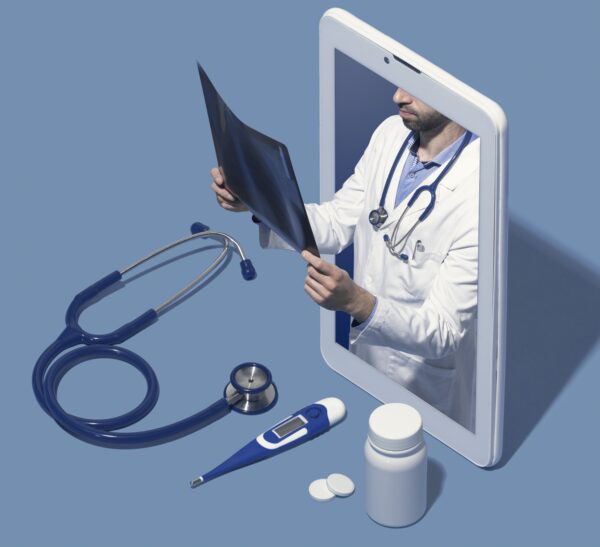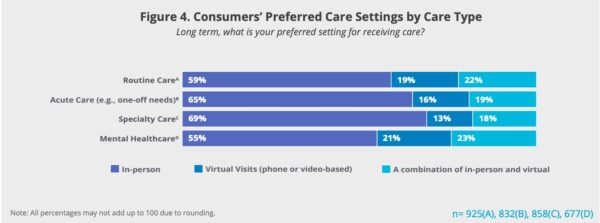
Despite growing confidence in returning to in-person care, 20% of U.S. healthcare consumers are still planning to delay physician visits this year and 22% are unsure, according to a new survey from patient access solutions provider Kyruus.
The survey, which polled 1,000 U.S. adults in March, shows that over 50% of respondents delayed some sort of care during the pandemic. Most of those who delayed care (48%) say they felt unsafe going into a healthcare facility in person.
But now, a majority of Americans (58%) say they do not plan to delay in-person care in 2021. In fact, in-person care is the most preferred care setting across routine (59%), acute (65%), specialty (69%) and mental healthcare visits (55%). [Click image to enlarge]
While the Covid-19 pandemic did not displace consumers’ preference for in-person care, it did increase their appetite for virtual care, with 30% of respondents saying they are more likely to choose virtual visits now than before the pandemic. Overall, 62% of respondents had a virtual care visit of some kind in the past year.
Looking ahead, about 63% said access to virtual care will be an important factor when deciding where to seek care, and of those, 40% said they would switch providers for the option to have virtual visits.

A Deep-dive Into Specialty Pharma
A specialty drug is a class of prescription medications used to treat complex, chronic or rare medical conditions. Although this classification was originally intended to define the treatment of rare, also termed “orphan” diseases, affecting fewer than 200,000 people in the US, more recently, specialty drugs have emerged as the cornerstone of treatment for chronic and complex diseases such as cancer, autoimmune conditions, diabetes, hepatitis C, and HIV/AIDS.
Digital scheduling options will also be key amid the ongoing Covid-19 vaccine rollout. Nearly half of respondents (46%) said they had looked for vaccine appointment information online, consulting state or government websites (57%) or a health system or hospital website (35%).
A majority of respondents (60%), spanning all age groups, said they would prefer to book vaccine appointments online. Even among those 65 and older, 51% cited online scheduling as their preferred appointment booking method. [Click image to enlarge]
But virtual visit and online scheduling options will not be the only factors driving Americans’ care decision-making in the year ahead.
About 48% of survey respondents said that insurance coverage will be the most important criteria impacting their care decisions, while 37% said the ability to obtain timely care will have the biggest impact. Around 22% said the same regarding clear information on Covid-19 safety protocols.
“Continuing to educate patients about their options for receiving care — across modalities, settings and care types — and empowering them to increasingly self-navigate when desired will go a long way in helping healthcare organizations stand out in the post-pandemic world,” the report states.
Source: cyano66, Getty Images














